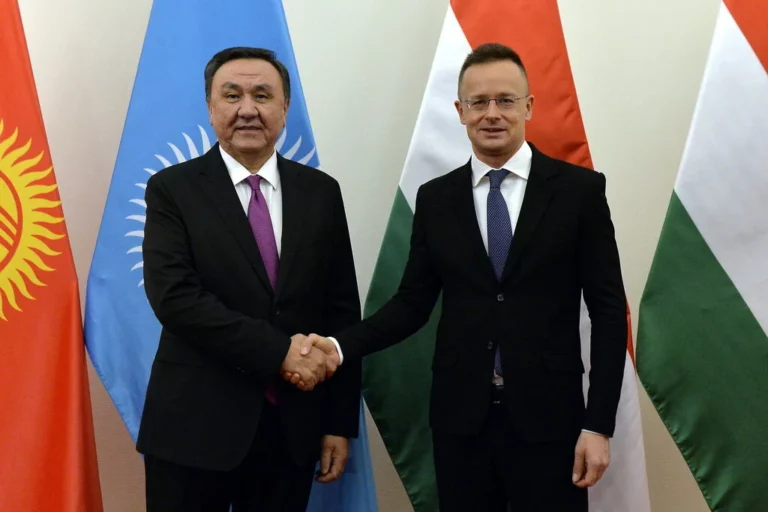Turkic Council
Kyrgyz foreign minister Jeenbek Kulubaev held talks in Hungary

Uzbekistan and Hungary have established a strong and reliable partnership
Building upon their historical ties, Uzbekistan and Hungary have established a strong and reliable partnership, positioning Hungary as a crucial...
Ombudsmen of Turkic states meet in Hungary

Hungary won’t approve EU decisions disadvantageously affecting Turkic states

PHOTOS: A youth forum celebrated the legacy of Heydar Aliyev, Azerbaijan’s national leader in Budapest

Uzbekistan opens embassy in Budapest, new direct flights have also been announced

Hungary tries to save Russian businessmen from the new EU sanctions

Hungary would like the Turkish president to win the Nobel Peace Prize

Government would like to boost Hungarian economy with Kazakhstan, Uzbekistan and other Turkic states

Minister: Organisation of Turkic States to set up crucial institution in Budapest

Hungarian minister happy: eastern investors in the country overtook western ones

Orbán in Uzbekistan: Organisation of Turkic States a “forum of peace”

Orbán cabinet supports Kazakh president who gives shoot-to-kill orders to quell protests

Orbán cabinet: Attempt was made to topple the constitutional order in Kazakhstan

Hungarian FM Szijjártó: Turkic Council cooperation is based on mutual respect

Budapest to organize Visegrád Four-Turkic Council summit in 2022!





 ZH
ZH IT
IT DE
DE HR
HR NL
NL FR
FR JA
JA RO
RO RU
RU ES
ES TR
TR
